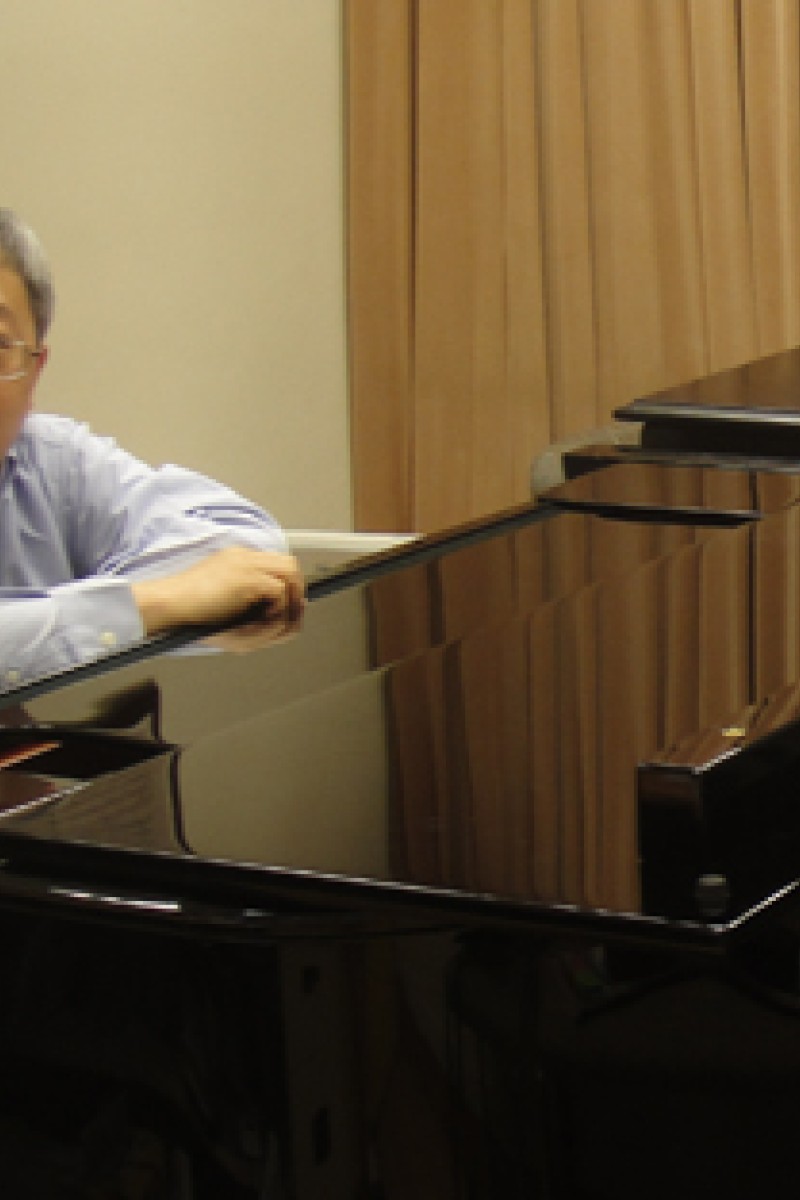Being forced to learn to play an instrument by parents is no fun, but a professor at the Academy for Performing Arts tells YP junior reporter Ruby Leung of some real benefits
 Professor Gabriel Kwok, of the Academy for Performing Arts, says music develops both halves of the brain.
Professor Gabriel Kwok, of the Academy for Performing Arts, says music develops both halves of the brain.With more than 1,000 musical instruments available to be played, the piano is one of the most popular choices for students in Hong Kong. But why the piano rather than the violin or the cello?
We took that question and others to Professor Gabriel Kwok, head of keyboard studies at the Hong Kong Academy for Performing Arts.
First of all, learning music trains our brain, especially the creative and abstract right side, he says.
"Even if you excel academically, you're only using one side of your brain. Playing the piano trains the other side so that your whole brain can be developed," says Kwok. He pointed out that playing music actually uses both sides of the brain. The left side is used for understanding musical structures, so not only does playing the piano make you a well-rounded person, it also gives you a well-rounded brain.
Second, Kwok says, playing music teaches students to be more disciplined and improves their concentration. It also helps us to develop courage. One part of taking music lessons is performing what you've learned. "You'd need a lot of courage to perform in front of people, especially if you're very young," Kwok says.
Third, music lessons can change your attitude towards other things in life. For example, you might not understand why you have to spend so much time on one single note or how long a passage you're told to play more loudly should go. Or you might find it disheartening not being able to play a piece even though you have practised for a long time.
But you'll learn concentration and patience, and you'll be more determined. Music also trains you to cope with times you don't do well. As you get older, this realisation benefits you in your studies and other areas of life.
"The study of music helps with a person's overall development," Kwok says.
So, back to the piano. Kwok says playing it has certain benefits over other instruments. For example, a piano lets you play two notes at the same time, "so you can play in harmony. It is like an orchestra and it can imitate the sound of other instruments", he says.
It is important for students to learn an instrument, but it doesn't have to be the piano, because it takes a lot of practice, he stresses. If you don't practise, you won't make any progress. If you don't make progress, you wouldn't want to continue. Other instruments, such as the recorder, won't take as much time to practise.
"For example, you can't play the trumpet for too long, since your lips swell. Of course, students who play the piano make faster progress in learning other instruments later," Kwok says.
Musicians don't usually become professionals if they don't start at an early age. Kwok says this is because young children's ability to comprehend is extremely high. "A child's improvement in playing technique can be much quicker than a 20-year-old's." Also, young children have little idea of what boredom is, because almost everything they come across seems unusual and fresh. "If you ask 15-year-olds to practise scales, they will be very bored. But children might treat it as a routine, like brushing your teeth after waking up."
So, just how old exactly should children be before they start playing the piano? "They can start when they can sit still," Kwok says. "Four- or five year-olds can attend singing classes in groups to train aural skills first because that's the most important. When aural skills are developed, everything's easier."
